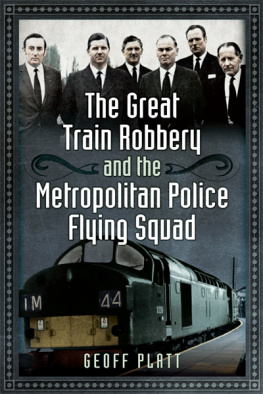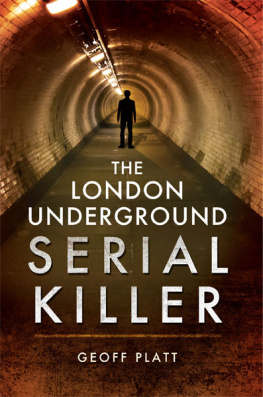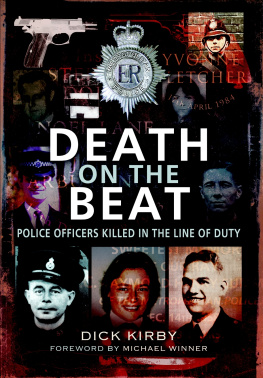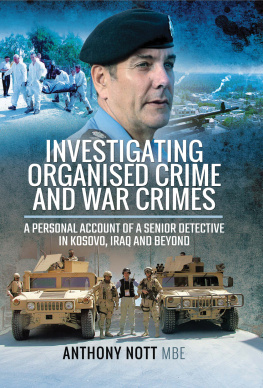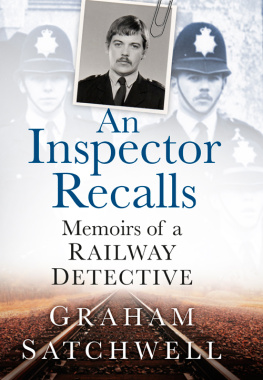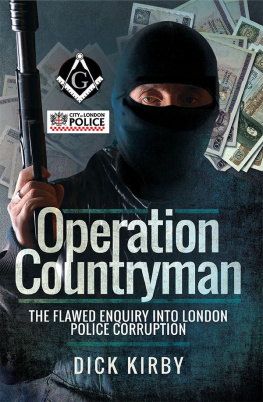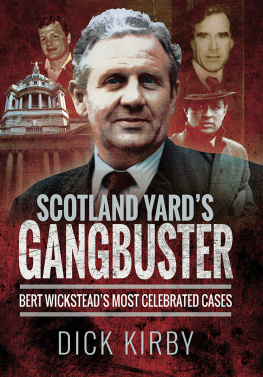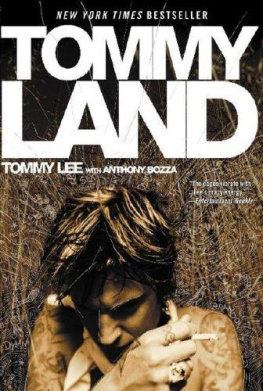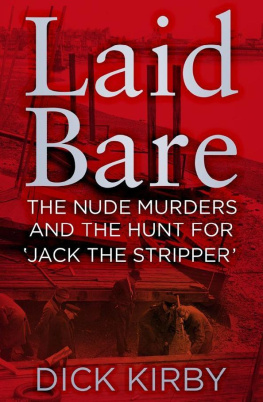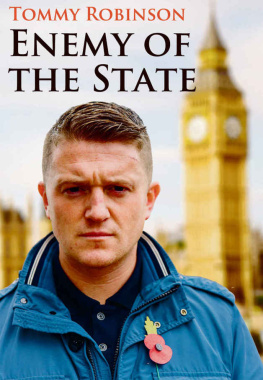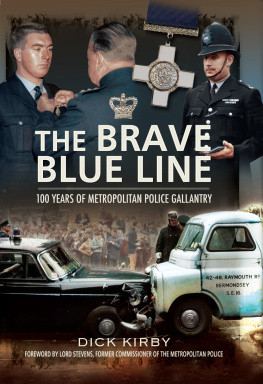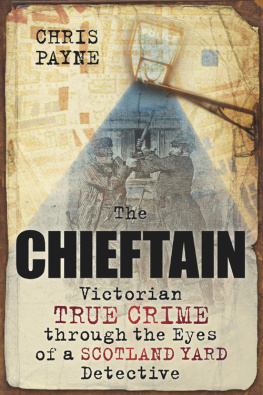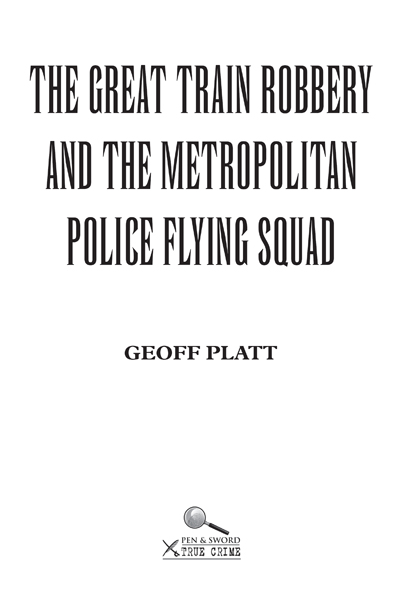
First published in Great Britain in 2015 by
Pen & Sword True Crime
an imprint of
Pen & Sword Books Ltd
47 Church Street
Barnsley
South Yorkshire
S70 2AS
Copyright Geoff Platt 2015
ISBN 978 1 47382 380 8
eISBN 9781473857469
The right of Geoff Platt to be identified as the Author of this Work has been asserted by him in accordance with the Copyright, Designs and Patents Act 1988.
A CIP catalogue record for this book is available from the British Library
All rights reserved. No part of this book may be reproduced or transmitted in any form or by any means, electronic or mechanical including photocopying, recording or by any information storage and retrieval system, without permission from the Publisher in writing.
Pen & Sword Books Ltd incorporates the imprints of Pen & Sword Archaeology, Atlas, Aviation, Battleground, Discovery, Family History, History, Maritime, Military, Naval, Politics, Railways, Select, Transport, True Crime, and Fiction, Frontline Books, Leo Cooper, Praetorian Press, Seaforth Publishing and Wharncliffe.
For a complete list of Pen & Sword titles please contact
PEN & SWORD BOOKS LIMITED
47 Church Street, Barnsley, South Yorkshire, S70
2AS, England
E-mail: enquiries@pen-and-sword.co.uk
Website: www.pen-and-sword.co.uk
Contents
Acknowledgements
A book, even a small paperback, is the culmination of a great deal of work over a long period of time and such a project requires that the author receives a considerable amount of support and understanding from his or her friends and colleagues.
It was whilst watching the Great Train Robbery on television on the BBC on 18 and 19 December 2013 that the idea of a book focusing on the other side first occurred to me. So many books, films and television programmes had been written about the bad guys, the losers, the robbers who had been sentenced to up to thirty years imprisonment, yet almost nothing had been written about the good guys the winners, the Police.
I mentioned this idea to my friend, the successful author, Dick Kirby, and encouraged him to take on the project. He cited personal reasons for not wanting to do so, but encouraged me to give it a try and referred me to his publisher, Pen and Sword and their Marketing Manager, Mr Jonathan Wright. He readily agreed a deal and sent me a contract to sign.
It was then, of course, that the full weight of the work that I had taken on, hit me!
I would like to express my appreciation to:
Thames Valley Police, their Chief Constable, Ms Sara Thornton CBE QPM, and the Curator of their museum, Mr Colin Boyes for their support and assistance as well as for allowing me to reproduce the statements made by their officers for the 50th Anniversary of the Robbery.
The Society of ex-CID officers of the Metropolitan Police, and their Secretary Bob Fenton QGM for his assistance in identifying and tracing officers on the enquiry.
The National Association for Retired Police Officers (NARPO), Judy Redford, the London Branch Manager and Julia Mullan, their IT Manager, for their assistance in identifying and tracing officers on the enquiry.
Geoff Platt
Preface
A s the author has mentioned in the Acknowledgements section of this book, he initially asked if I would wish to write an account of the Great Train Robbery. I demurred because (a) I was already heavily involved in writing another book, (b) I had already devoted a chapter to the Great Train Robbery in my history of the Flying Squad, The Sweeney and (c) I believed that especially in the year of the 50th anniversary of the crime quite enough books had been written on that particular subject. But with regards to (c), it just shows you how wrong one can be
In this fascinating account of what the media referred to as The Crime of the Century, Geoff Platt has dug deep in his research to provide the reader with a gripping narrative of the planning of the heist and who did what, and why, from both sides of the fence the cops and the robbers.
There are biographical accounts of the police officers involved in the investigation and the author describes precisely why they were the men best suited for the job of catching the men responsible for Englands most audacious crime of the twentieth century. He has also cleverly introduced the points of view of some of the police officers from the Buckinghamshire Constabulary who contributed to the enquiry. Each of the arrested robbers also receives a biographical note and more importantly, we learn what happened to them after the trial.
There are insights into aspects of the investigation which have not previously been revealed and in a particularly evenhanded fashion, Geoff Platt details mistakes made by all of the participants. The police the calamitous decision by senior officers to publish details of the wanted men and their wives in the media; and the initial mistake in permitting the railway engine to be taken from the scene and thoroughly contaminated before an in-depth scientific forensic examination could be made. The robbers were at fault for failing to ensure that their hideout was not burnt to the ground; and the Post Office displayed staggering complacency for not providing adequate security for such an enormous sum of money.
Most interesting of all, Geoff Platt compares the investigation of the Great Train Robbery with other modern day major crime enquiries how it was tackled then, and how it would be dealt with now. Would the Train Gang have been caught using todays methods? Then, information was recorded using The Scotland Yard System filing cards which were cross-referenced; now, records are computerised but both systems are only as good as the people responsible for feeding in the information. Crime scene investigation has improved out of all recognition from half-a-century ago; detectives, too have changed. Would todays investigators have the contacts, the skills, the sheer cunning of their Flying Squad contemporaries of yesteryear to combat the top echelon of criminals?
This book provides at least some of the answers and from the mass of information contained in its exciting and well put together pages, the readers can reach their own conclusions.
Dick Kirby
Former Flying Squad Detective.
Introduction
T he Great Train Robbery occurred on 8 August 1963 and immediately caught the publics imagination as an audacious challenge to authority, represented by the Government, the Bank of England, the Post Office, British Rail and the Police. This was the post-Second World War period during which all authority was routinely challenged, the sexual revolution occurred and in which first RocknRoll and then Pop music became popular. Public interest in the crime was extremely high and the Robbery dominated newspaper headlines for a fortnight.
An unprecedented series of newspaper articles, books, television shows and films have maintained an almost constant interest in the crime in the intervening period. The public have shown an insatiable appetite for stories about the criminals, their lives, what motivated them to do what they did, and the ways in which the Robbery changed their lives. Ronnie Biggs, who failed to perform his role in the Robbery satisfactorily, gained a reputation as a cheeky chappy as he escaped from Wandsworth Prison and travelled across the world, thumbing his nose at authority and sending what appeared to be almost daily reports on his progress to the press. Despite running out of his share of the proceeds of the Robbery by 1966, he managed to generate a satisfactory income by giving press interviews, consulting on television programmes and films based on the Robbery, and making even more money than Tony Blair for posing for photographs, so as to be able to live comfortably for another thirty-five years.

